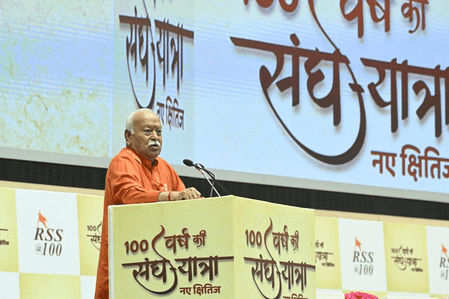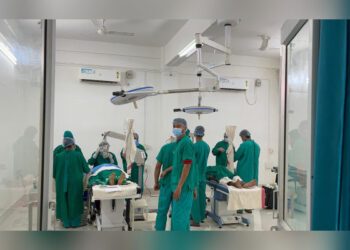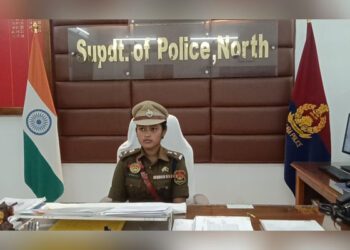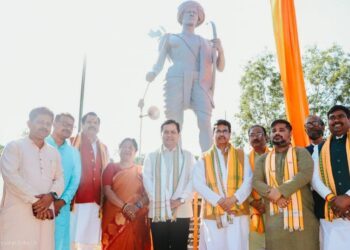New Delhi, Aug 28 (IANS) — At the centenary celebrations of the Rashtriya Swayamsevak Sangh (RSS) in the national capital, RSS chief Mohan Bhagwat reaffirmed the organisation’s vision of India as a “Hindu Rashtra,” describing it as culturally inclusive and spiritually rooted.
Bhagwat stressed that the concept does not require state endorsement, as it has long been sanctified by sages and saints. Warning that rejecting India’s civilisational ethos could lead to societal fragmentation, he clarified that Hindu Rashtra is not about religious exclusivity.
“The RSS imagination of Hindu Rashtra is neither in opposition to anyone nor does it leave out anyone,” he said, asserting that “Hindu” reflects a civilisational identity rather than a religious one.
Drawing on history, Bhagwat argued that all inhabitants of Akhand Bharat — a cultural geography extending beyond present-day India — share the same DNA for thousands of years. “Everyone in Akhand Bharat is a Hindu,” he declared, presenting the identity as a unifying force rooted in shared traditions and values.
Responding to critics who view the idea as divisive, he emphasised: “It is not ‘Hindu versus others.’ Hindu Rashtra is an egalitarian framework that includes all who share in the cultural ethos of this land.”
Bhagwat also raised concerns over demographic shifts, citing religious conversion and illegal migration. While acknowledging government action, he urged greater societal vigilance. Importantly, he clarified that his call for prioritising jobs for Indian citizens includes Muslims: “We should not give jobs to illegal immigrants; we should give jobs to our own people, including Muslims.”
Addressing swayamsevaks, scholars, and dignitaries, Bhagwat positioned Hindu Rashtra as a framework for cultural nationalism, social cohesion, and vigilant citizenship — principles that, he said, will guide the RSS into its second century.
















